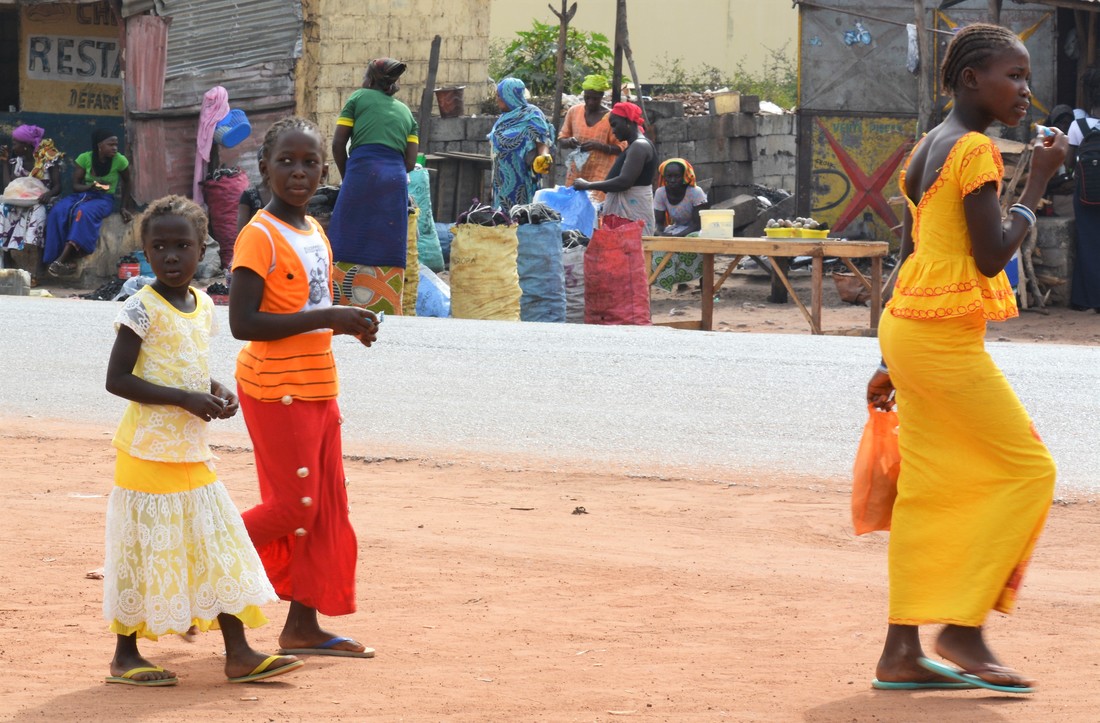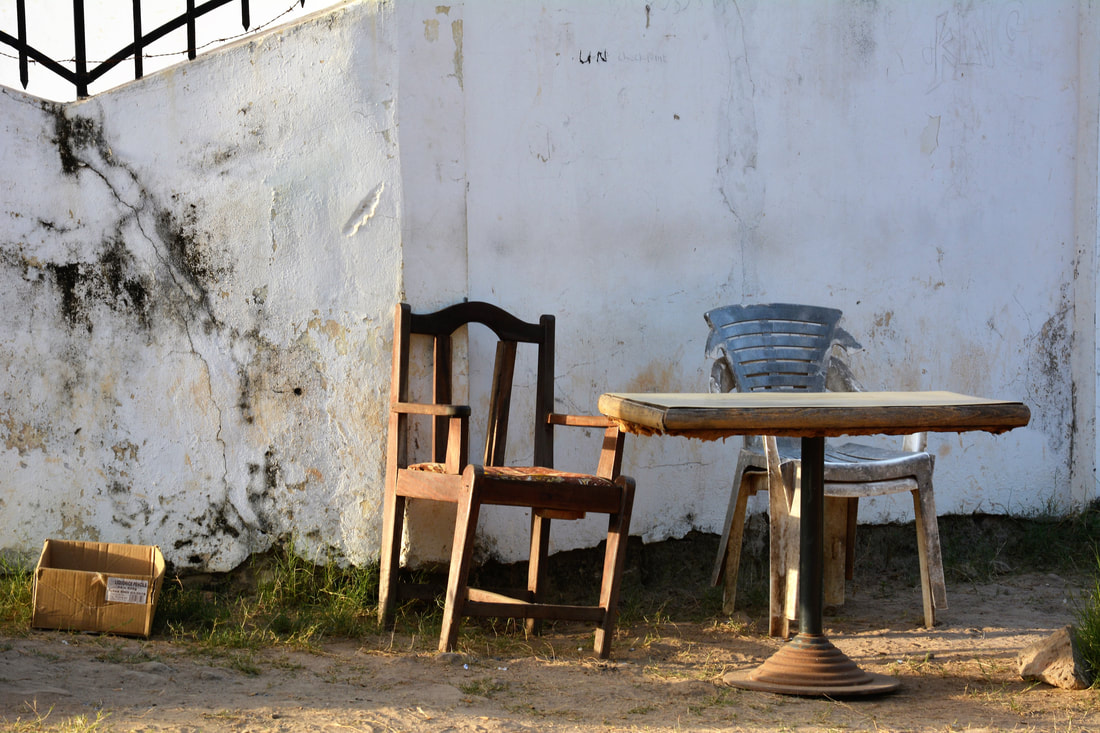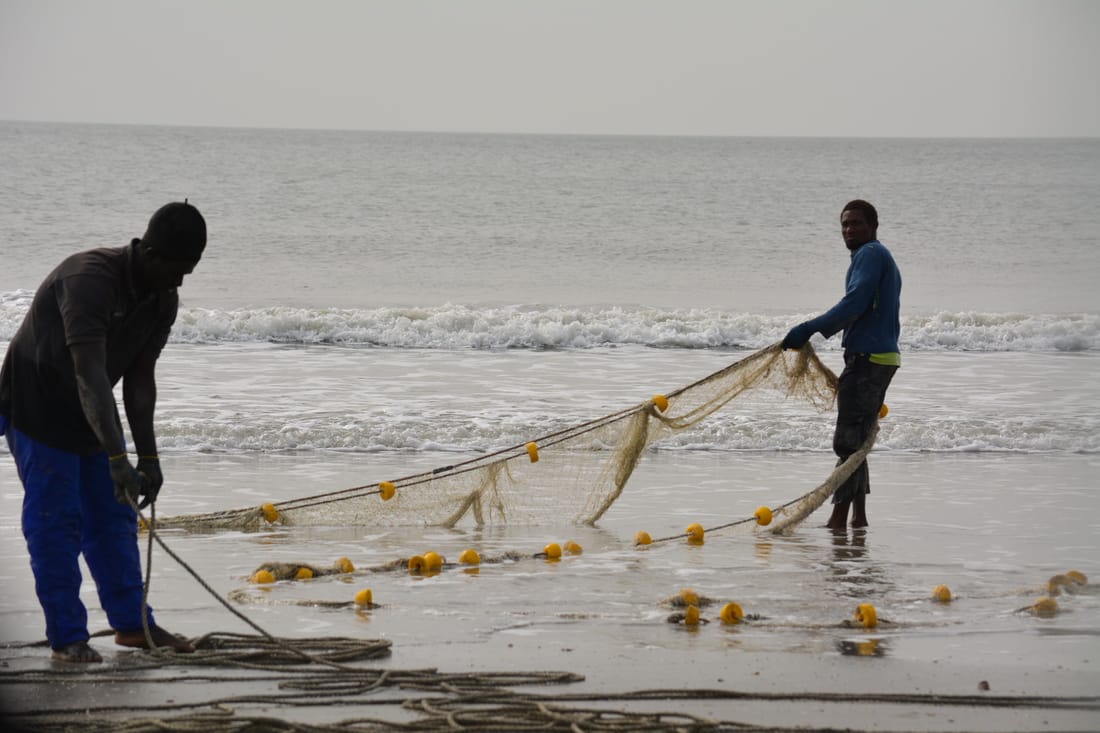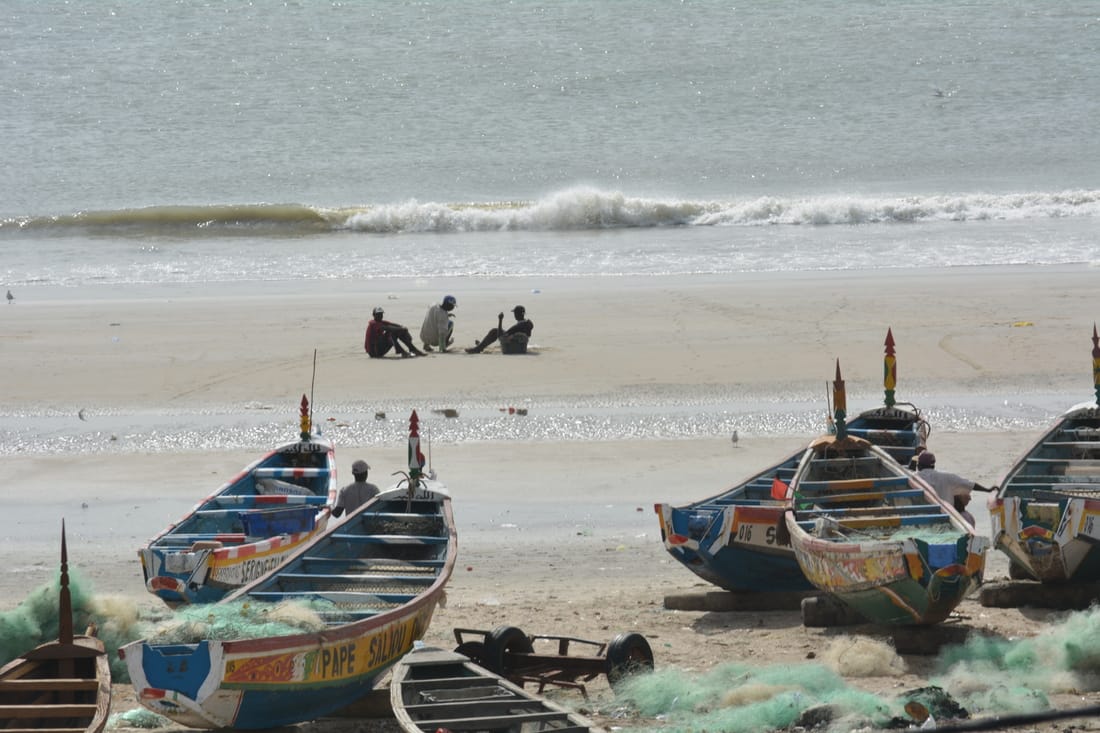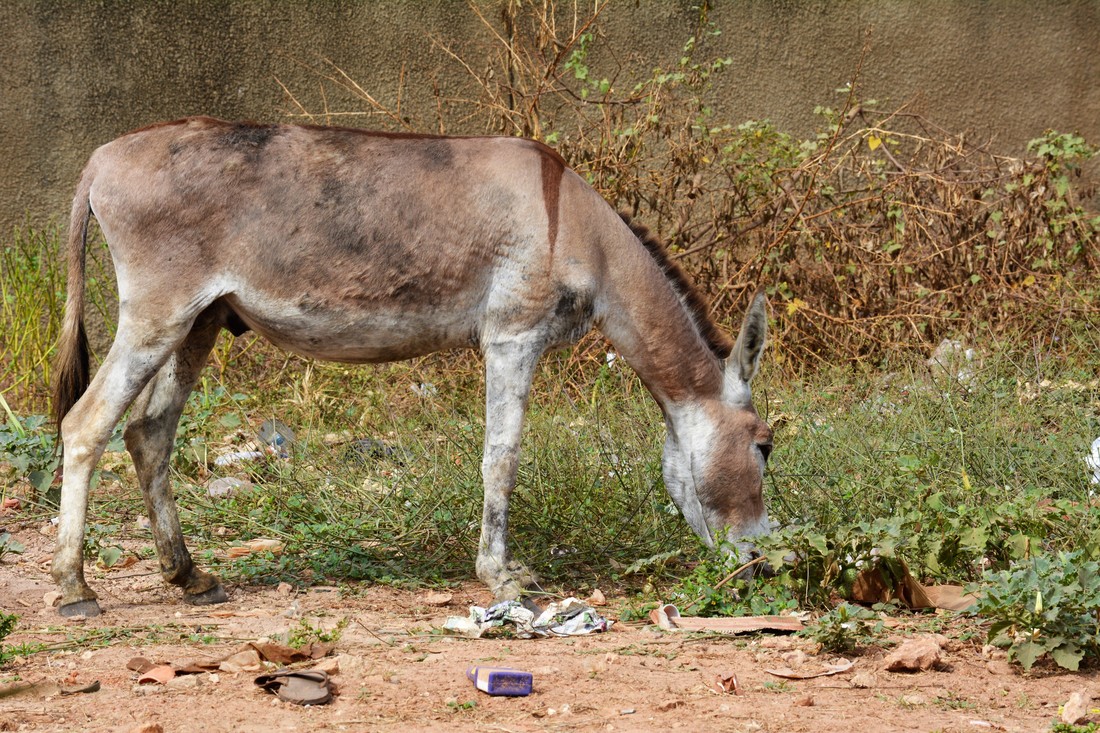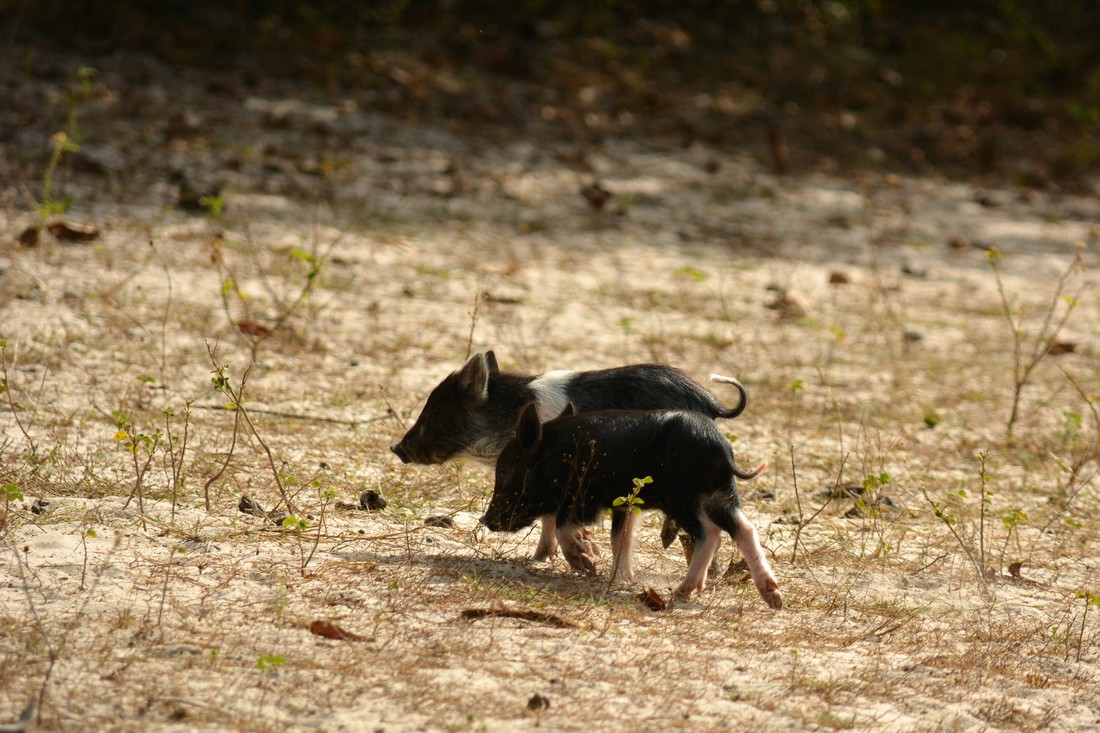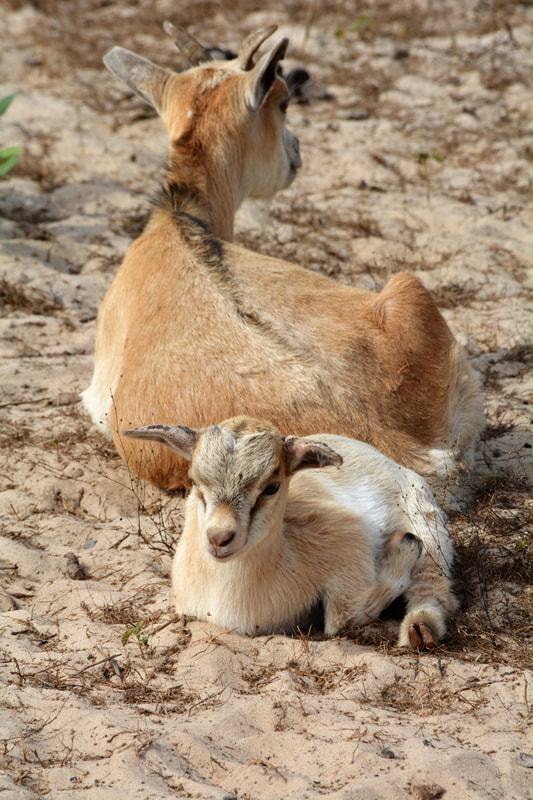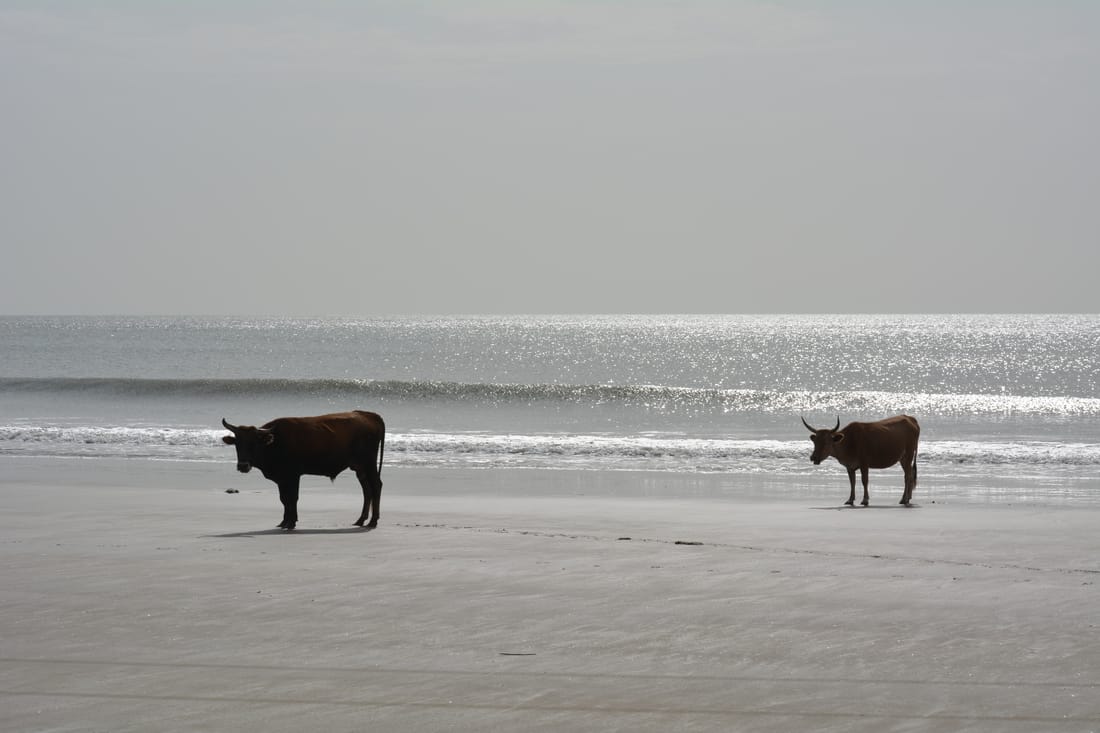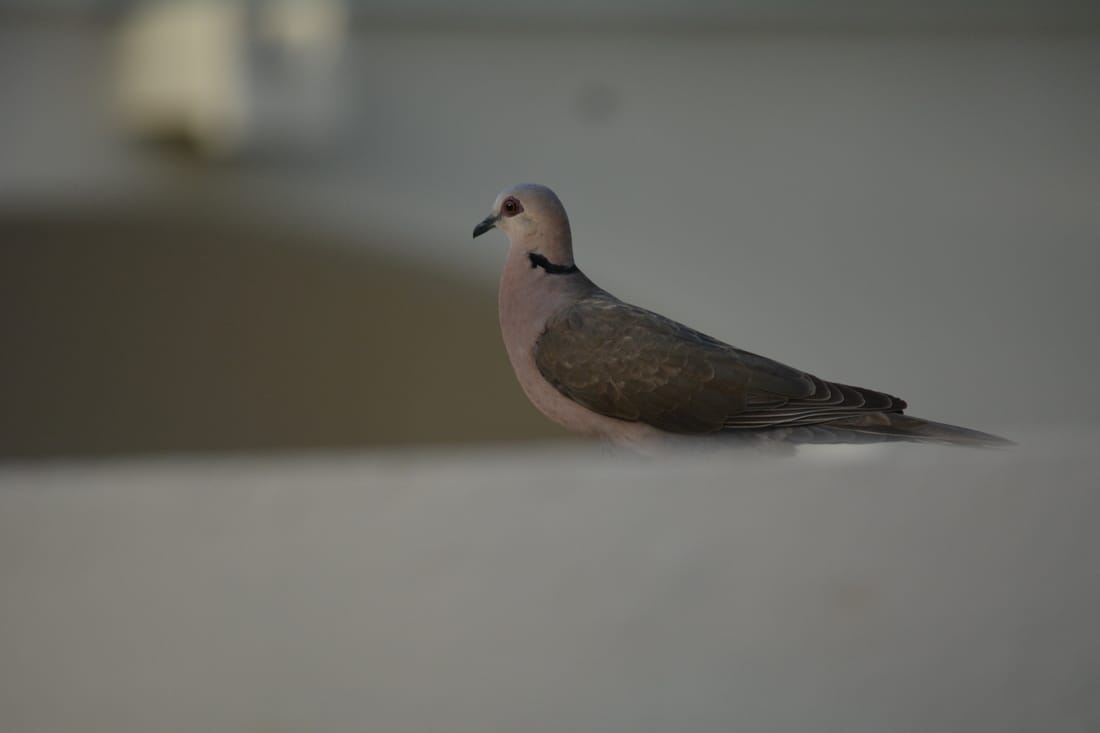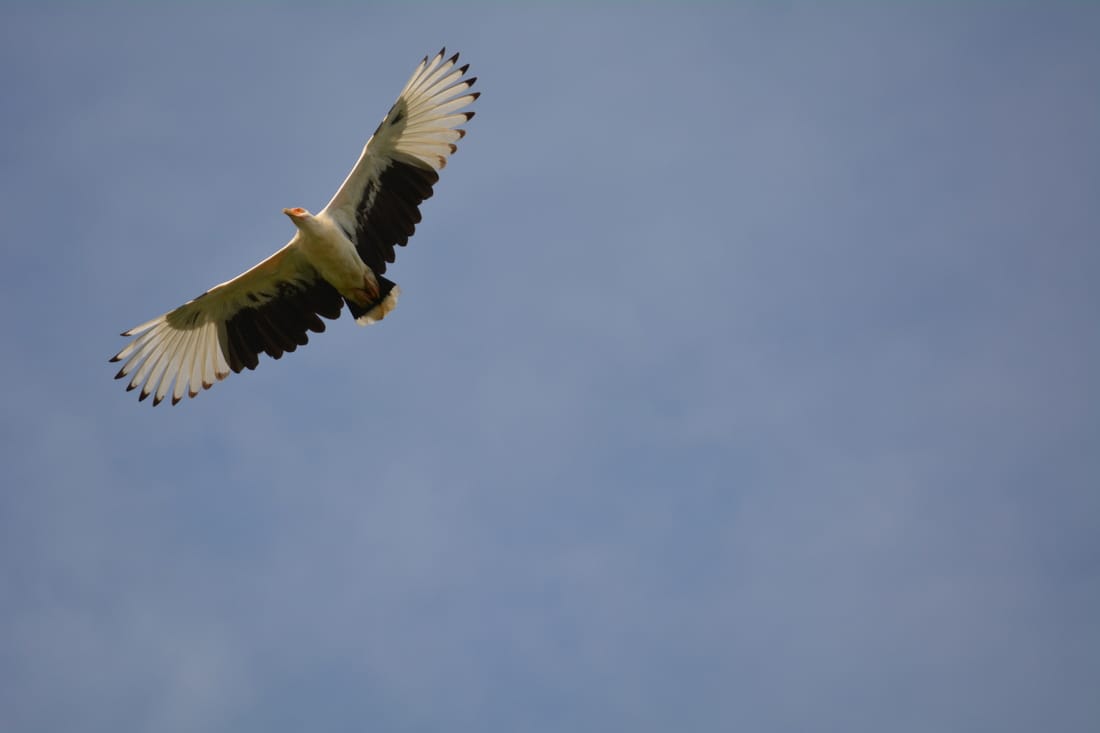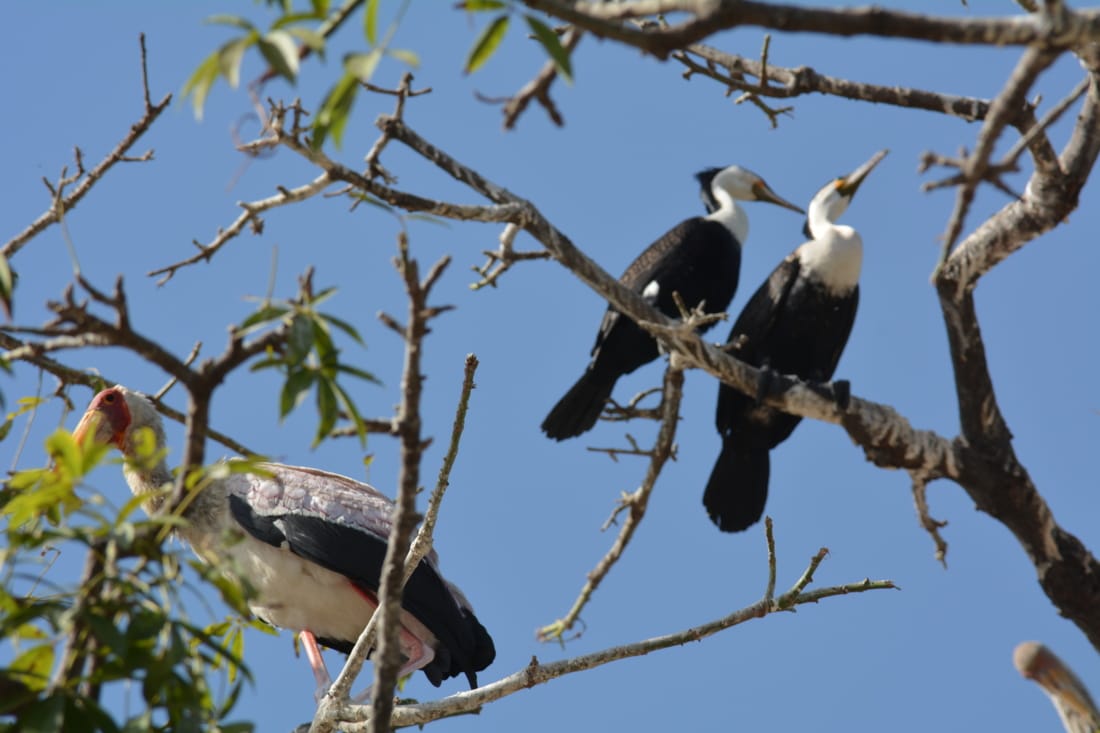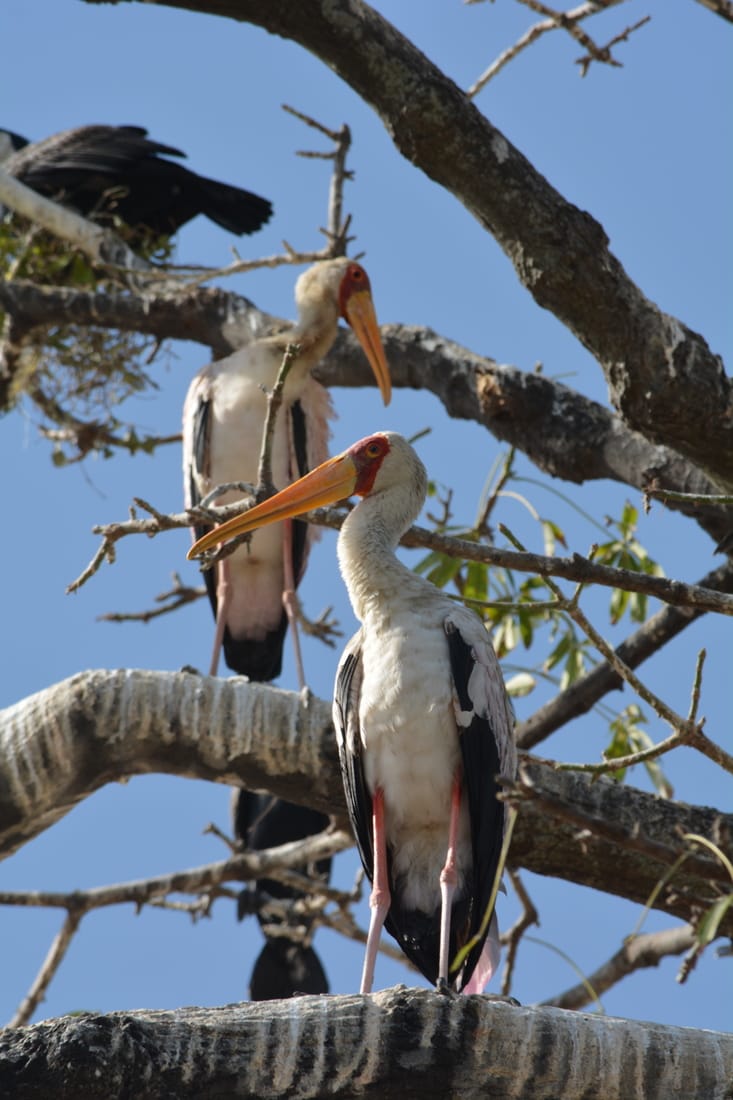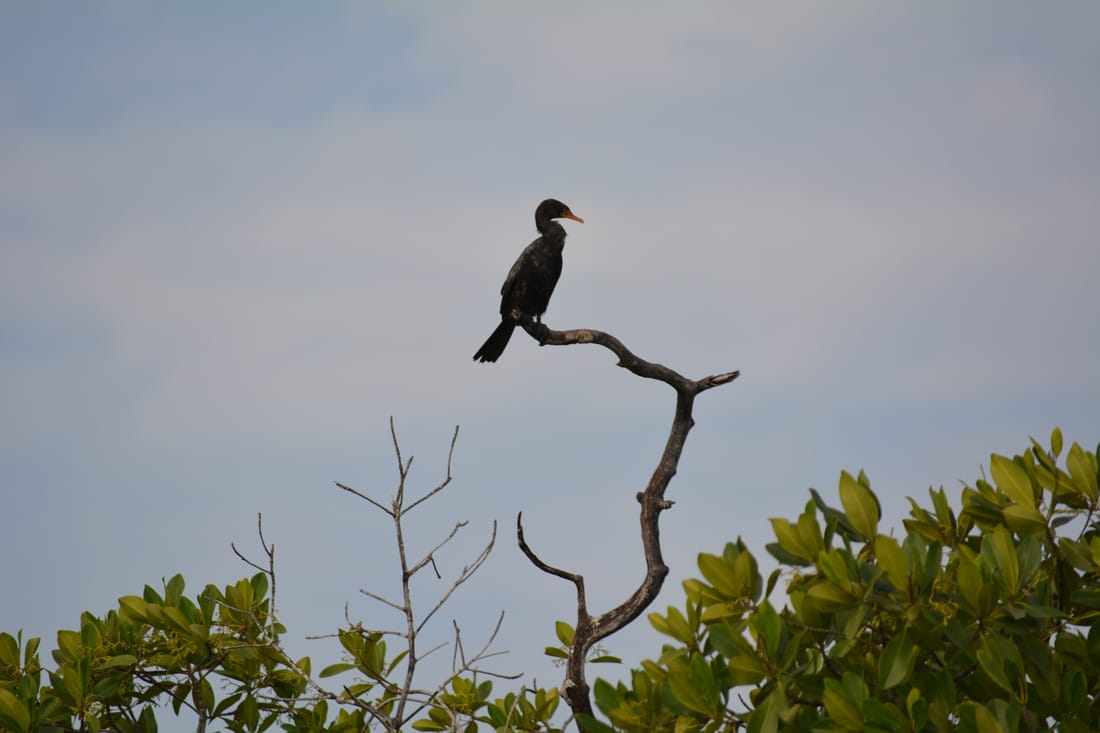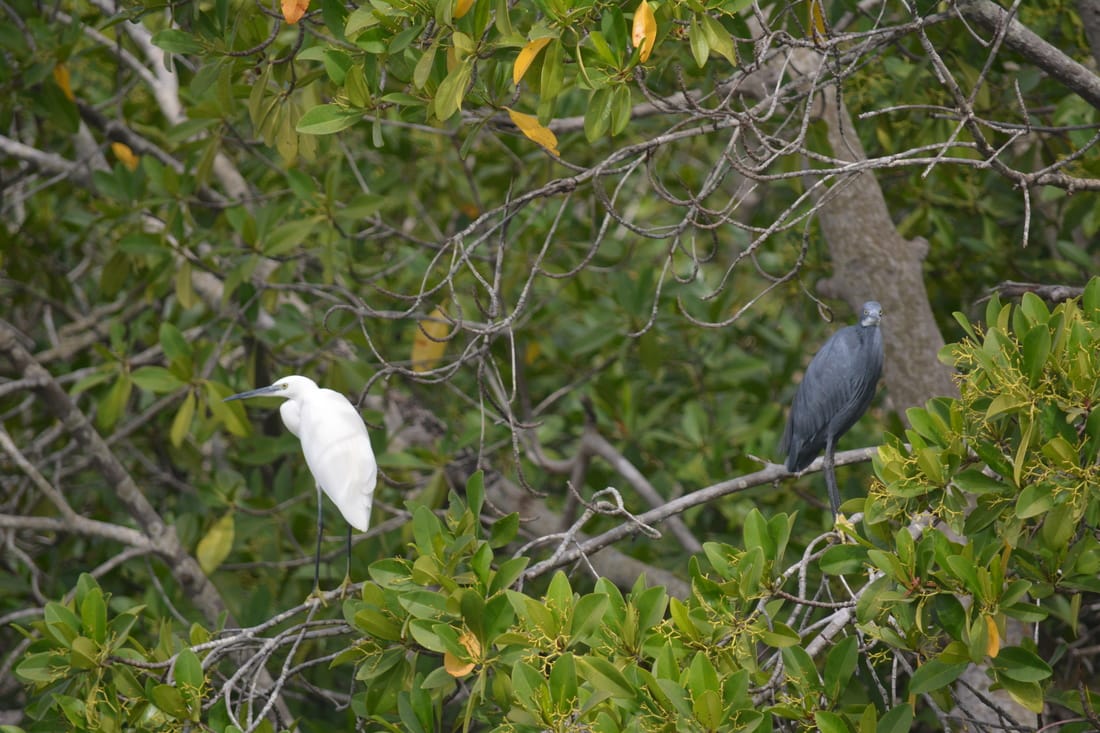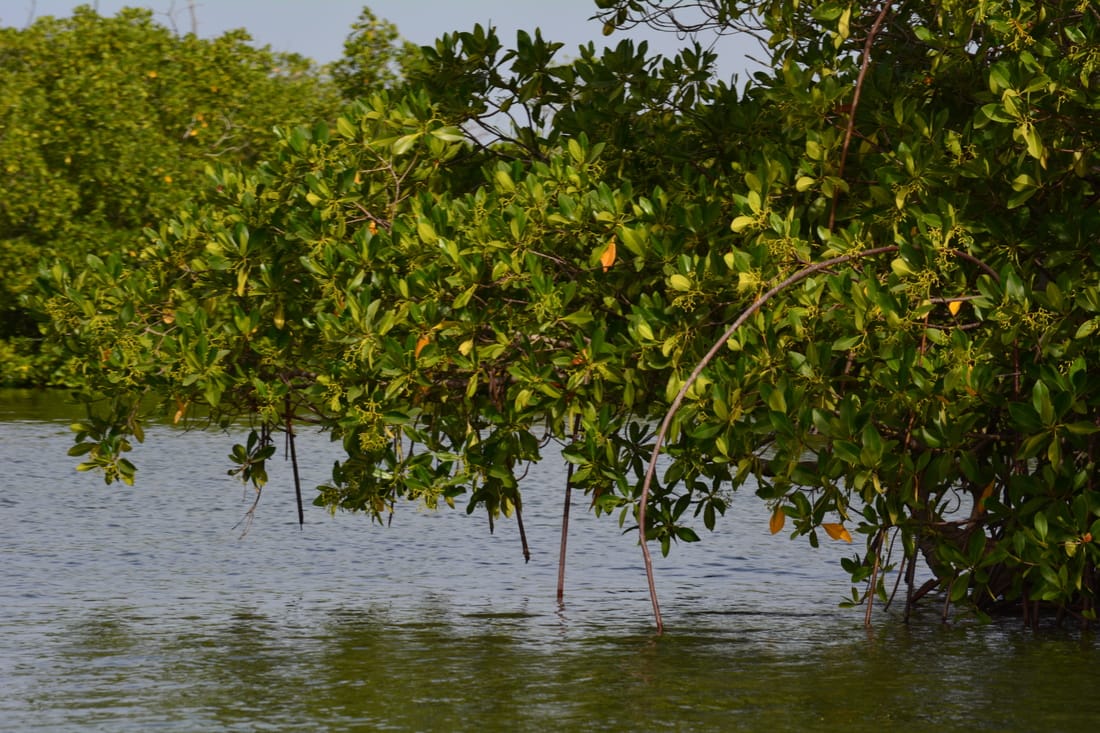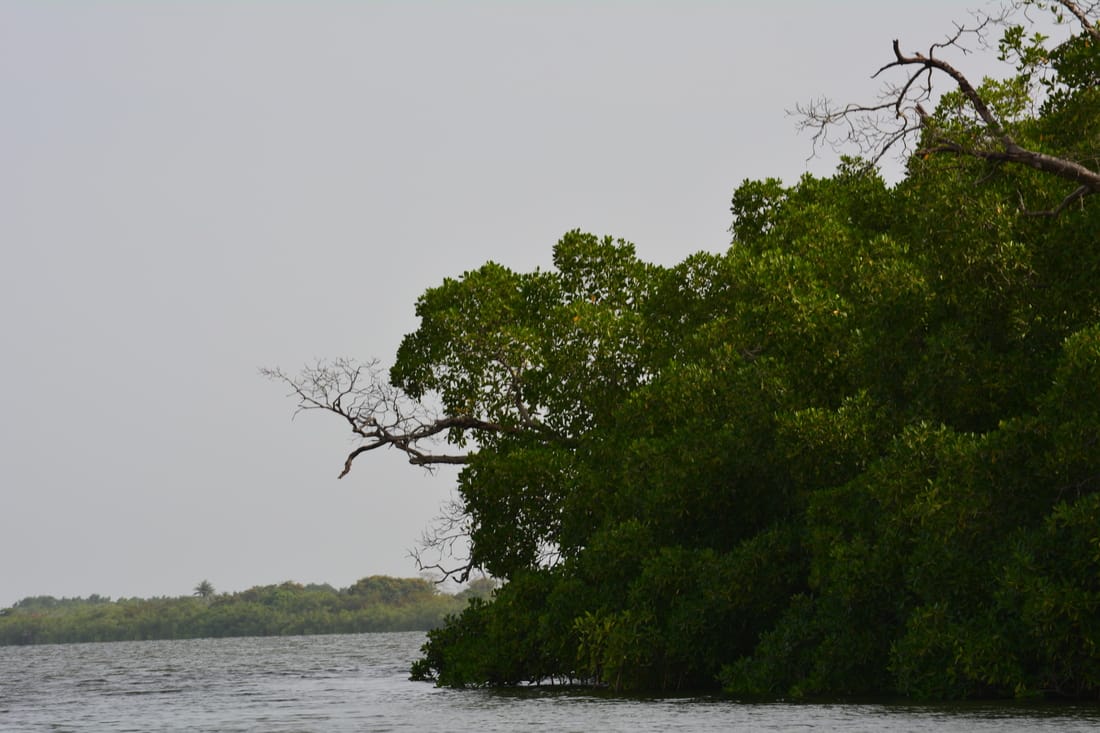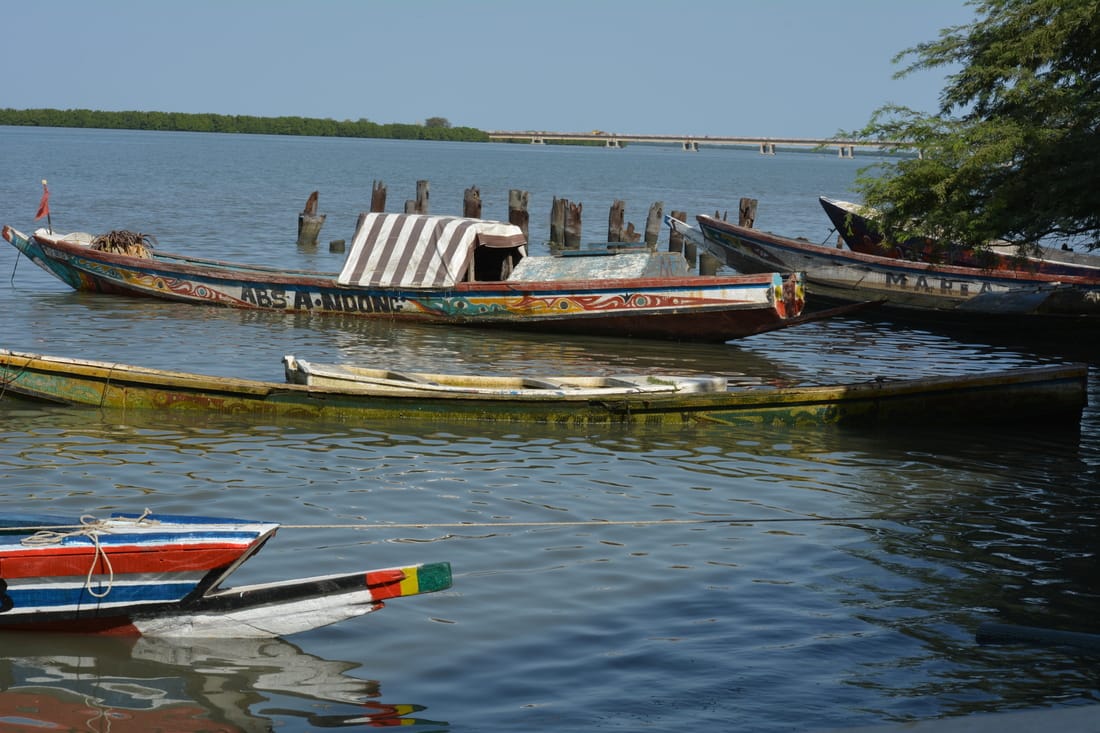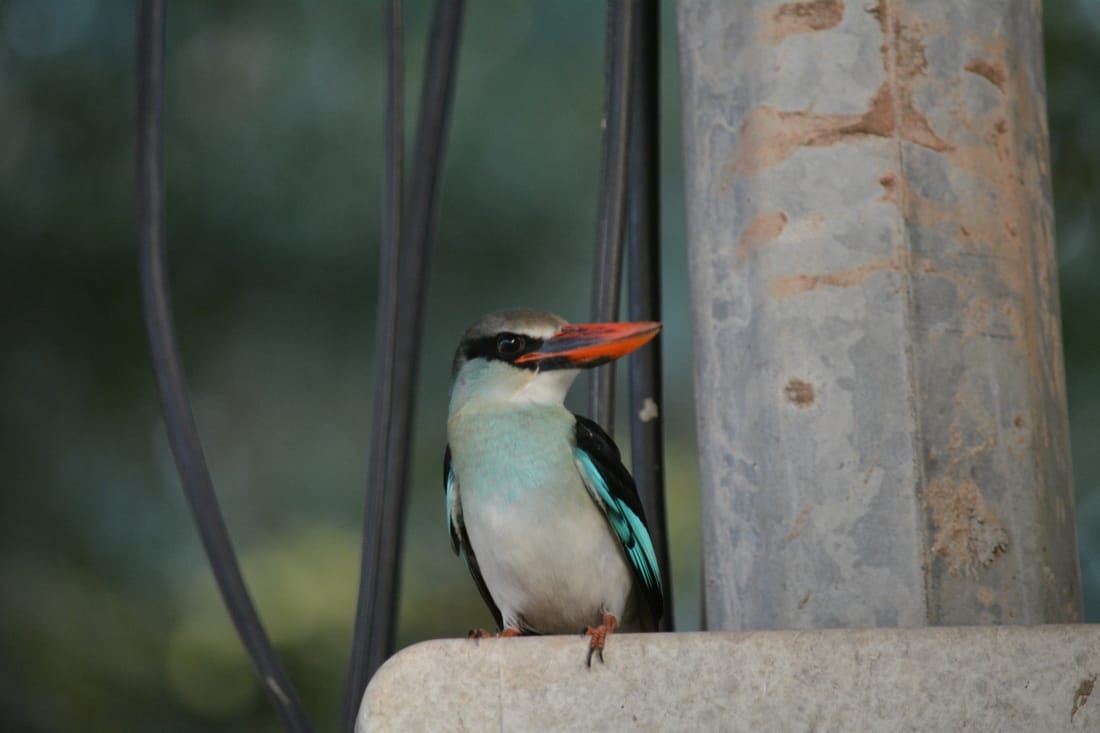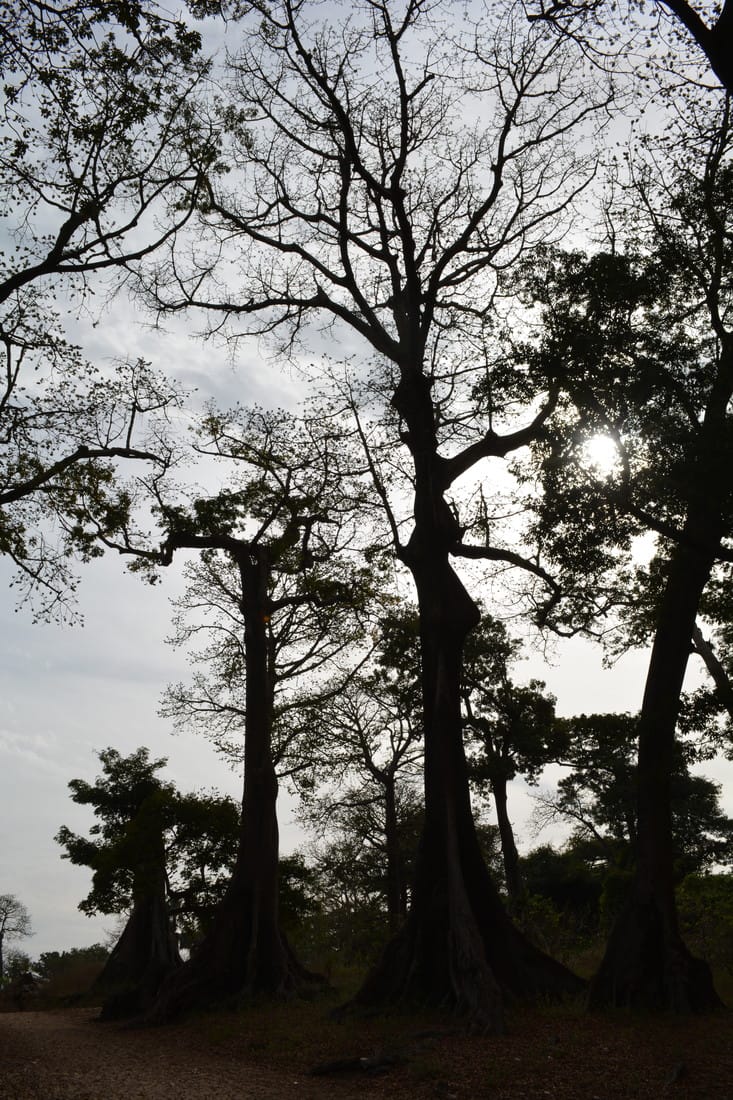what is Senegalese literature?
Most people think that it started with French colonization, and that it is a typical postcolonial, Francophone literature. In fact, this kind of literary production is relatively abundant today.
On the other hand, it is good to know that there is another tradition of literacy in this part of Africa, related to Islamic culture and the presence of Arabic script, coexisting with the local languages of certain importance, such as Wolof. The Sufism (a mystical branch of Islam) was a factor of literacy and literature creation especially from the 18th c, on. Classical Francophone texts, such as Une Aventure ambiguë by Cheikh Hamidou Kane (1961) often reflect the importance of this spiritual and intellectual background.
The newest Francophone Senegalese literature often acquires a gender resonance, speaking of the multiple deficiencies of the female condition in a society oppressed not quite by Islam, but even more importantly by poverty and economic stagnation. The novel La nuit est tombée sur Dakar (2004) by Aminata Zaaria is a good example of this type of literature. It narrates the dilemmas of two young women, - just teenagers by European standards - who chose to become lovers of foreigners in Dakar rather than accept the traditional roles prepared for them in their native village or invest in an uncertain future based on education (that may give a job or not). This West African form of feminist literature typically explores such topics as promiscuity, polygamy, female genital mutilation. In the background, there is a vision of a dysfunctional society and state, offering no prospects to anyone.
On the other hand, it is good to know that there is another tradition of literacy in this part of Africa, related to Islamic culture and the presence of Arabic script, coexisting with the local languages of certain importance, such as Wolof. The Sufism (a mystical branch of Islam) was a factor of literacy and literature creation especially from the 18th c, on. Classical Francophone texts, such as Une Aventure ambiguë by Cheikh Hamidou Kane (1961) often reflect the importance of this spiritual and intellectual background.
The newest Francophone Senegalese literature often acquires a gender resonance, speaking of the multiple deficiencies of the female condition in a society oppressed not quite by Islam, but even more importantly by poverty and economic stagnation. The novel La nuit est tombée sur Dakar (2004) by Aminata Zaaria is a good example of this type of literature. It narrates the dilemmas of two young women, - just teenagers by European standards - who chose to become lovers of foreigners in Dakar rather than accept the traditional roles prepared for them in their native village or invest in an uncertain future based on education (that may give a job or not). This West African form of feminist literature typically explores such topics as promiscuity, polygamy, female genital mutilation. In the background, there is a vision of a dysfunctional society and state, offering no prospects to anyone.
I have readCheikh Hamidou Kane, Une Aventure ambiguë (1961)
|
Vertical Divider
|
I have written |
unending story
Cheikh Hamidou Kane, Une Aventure ambiguë
Une Aventure ambigue is really an ambiguous book, that leaves me perplexed. Especially when I read it today, far from its historical context (early sixties, négritude, existentialism, a certain schematism of narration bent to form a frame for the encounter of ideas that is quite characteristic for the literature of that time). On the one hand, its main lines are very common: the dilemma of the parents (should they send their children to colonial school?) - the dilemma of the children (should they abandon their roots in search of Western modernity?) - the mind-boggling encounter with the Western world (that brings about the double outcome: madness and death). There is something deeply artificial in the supposed equality of the colonial school, where Monsieur Lacroix quite naturally sends his own kids, to sit on the same bank together with the young scions of Diallobe aristocracy, those philosophical dialogues between white and black men, completely out of any condition of violence, oppression, supremacy or power, as if the Diallo were actually free to take their own autonomous decision if they want to participate in the modernity or not. Oh, that vision of the Diallobe reading Pascal!... And the inevitable encounter with the rose-cheeked communist girl, distributing pamphlets in front of the Sorbonne, and a number of coffees taken unabashedly in the Boul'Mich, as if a Senegalese student in Paris AD 1960 were an equal among the equals (the equality would reach the supreme perfection if only he drank a glass of wine; that's the last obstacle). On the other hand, there is the ambiguity of the Muslim experience, that fervour of peripheral, mystical Islam that pervades human life, leaving no margin.
In the end, Islam prevails, and Samba Diallo takes up the place of his dead teacher in his Quranic school. Nonetheless, there is that final, rather inexplicable refusal of prayer, and the madman with a gun, as if in an anticipation of the Islamic destinies along the decades to come (meanwhile, the reader can easily guess that the madman might have been a Senegalese soldier on the front of a European war; this is why the idea of hard shells and metallic monsters ousting people from the world obsessed him so much). But why does he shoot, so unexpectedly? Just because a margin of thought, of reflection, of internal dialogue appeared, alien to the monolithic faith filling the human just as a liquid fills its container? Just because of the minimal delay that nonetheless exhausts the time (the established time in which a prayer is due, and the time as such)? Or simply because the laws of the genre, in which the existentialist revolutionaries constantly live on the fine red borderline between life and death, and just like in Sartre's Les mains sales, must end up making their hands dirty?
There is no conclusion. Except the final encounter with whom? God? The angel of death?
I think there are two ways of considering this novel. As a peripheral version of French existentialism. As an Islamic book, hidden beneath the modernisation. The second reading, much more difficult, closes the circle, making the reader return to the very beginning, to the sadistic teacher of the Quranic school who tortures the student he prefers to any other. To the relation between Arabic recitation and the peculiar mnemonic value of glowing logs. And to the kenosis exposed through the metaphor of the calabash, that first grows big, and heavy, and full of juice, only to drain itself in the end, to become dry and empty. And utterly, to receive and hold alien liquids.
Cheikh Hamidou Kane, Une Aventure ambiguë, Paris, Julliard, 1961.
Kraków, 4.08.2021.
In the end, Islam prevails, and Samba Diallo takes up the place of his dead teacher in his Quranic school. Nonetheless, there is that final, rather inexplicable refusal of prayer, and the madman with a gun, as if in an anticipation of the Islamic destinies along the decades to come (meanwhile, the reader can easily guess that the madman might have been a Senegalese soldier on the front of a European war; this is why the idea of hard shells and metallic monsters ousting people from the world obsessed him so much). But why does he shoot, so unexpectedly? Just because a margin of thought, of reflection, of internal dialogue appeared, alien to the monolithic faith filling the human just as a liquid fills its container? Just because of the minimal delay that nonetheless exhausts the time (the established time in which a prayer is due, and the time as such)? Or simply because the laws of the genre, in which the existentialist revolutionaries constantly live on the fine red borderline between life and death, and just like in Sartre's Les mains sales, must end up making their hands dirty?
There is no conclusion. Except the final encounter with whom? God? The angel of death?
I think there are two ways of considering this novel. As a peripheral version of French existentialism. As an Islamic book, hidden beneath the modernisation. The second reading, much more difficult, closes the circle, making the reader return to the very beginning, to the sadistic teacher of the Quranic school who tortures the student he prefers to any other. To the relation between Arabic recitation and the peculiar mnemonic value of glowing logs. And to the kenosis exposed through the metaphor of the calabash, that first grows big, and heavy, and full of juice, only to drain itself in the end, to become dry and empty. And utterly, to receive and hold alien liquids.
Cheikh Hamidou Kane, Une Aventure ambiguë, Paris, Julliard, 1961.
Kraków, 4.08.2021.
